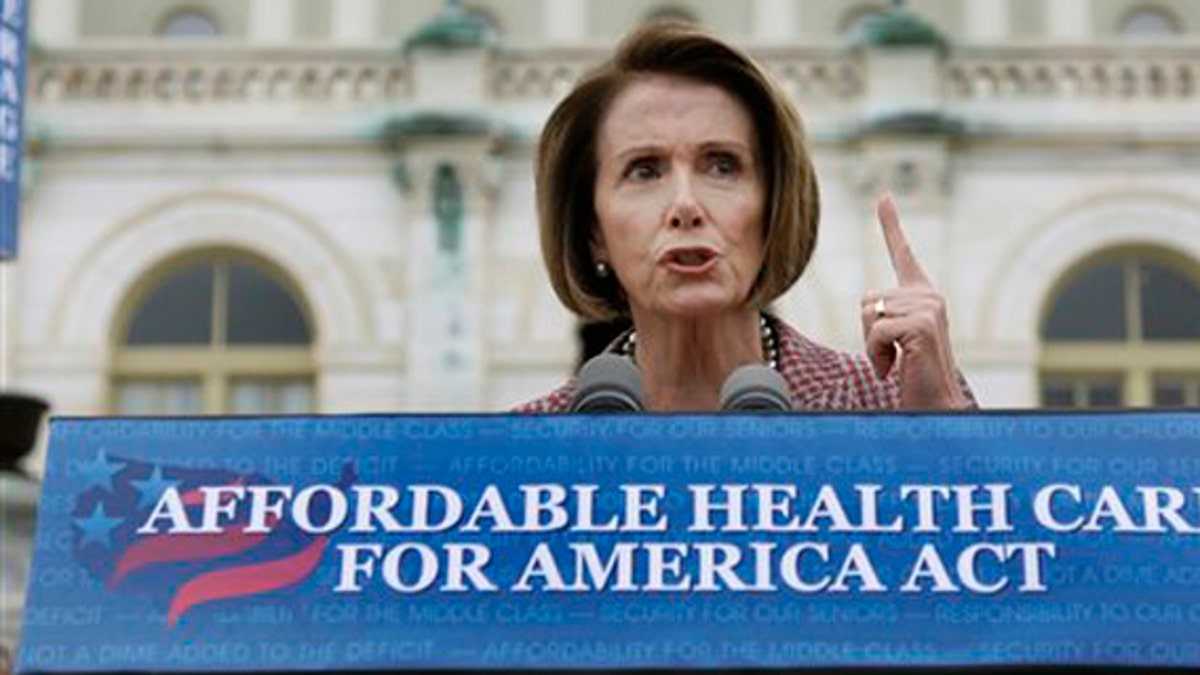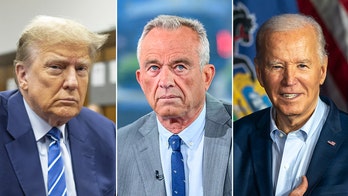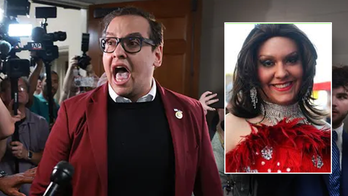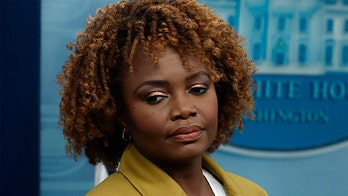
Thursday: House Speaker Nancy Pelosi gestures while speaking about health care during a news conference on Capitol Hill in Washington. (AP Photo)
House Speaker Nancy Pelosi was all smiles Thursday when she unveiled a health care bill that the House plans to vote on next week, but getting fractious Democrats to unite behind the 10-year, $1.055 trillion legislation may turn her smile upside down.
Pelosi needs 218 votes in a chamber that has 256 Democrats, but several liberal and moderate Democrats are already expressing a great deal of concern.
Liberals, including Rep. Lynn Woosley of California, want a stronger government-run health insurance plan with Uncle Sam picking up more of the tab, and they went to the White House Thursday night to voice their concerns about the bill to President Obama.
But fiscally conservative "Blue Dog" Democrats are concerned that the bill is going to bust the federal budget, and they have sent a letter to the Congressional Budget Office asking for more details on how it all adds up over 10 years and beyond.
House Republicans are staying united against the bill. House Minority Leader John Boehner decried the size and scope of the plan.
"All you need to know is there are 1,990 pages, should tell you everything," he said, adding that "it's going to be expensive when we're broke."
Boehner said he believes a "step-by-step approach will bring down cost and make it more affordable," including tort reform and allowing consumers to buy insurance across state lines and small employers to pool resources to buy coverage at the same price as large companies.
"It's common sense that will bring down costs," he said.
House Democrats will make their final adjustments next week before voting on the bill. House Majority Leader Steny Hoyer said he expects a vote no earlier than Thursday.
Republicans have already signaled their determination to make the health care debate a key issue in next year's congressional elections, when all 435 House seats will be on the ballot.
But they will be unable to block passage in the House if Pelosi and her leadership can forge a consensus among the Democratic rank and file.
Broad in scope, the House Democrats' bill attempts to build on the current system of employer-provided health care. It would require big companies to cover their employees and include federal subsidies to help small companies provide insurance for theirs, as well. Most individuals would be required to carry insurance, and much of the money in the legislation is dedicated to subsidies for those at lower incomes to help them afford coverage.
For those at even lower incomes, the bill provides for an expansion of Medicaid, the state-federal health program for the poor. Adults up to 150 percent of poverty -- individuals making up to $16,245 and a family of four up to $33,075 -- would be covered, a provision estimated to add 15 million to Medicaid.
One of the bill's major features is a new national insurance market, in which private companies could sell policies that meet federally mandated benefit levels, and the government would offer competing coverage, and consumers could shop for the policy that best meets their needs.
In a bow to moderates, Democrats decided doctors, hospitals and other providers would be allowed to negotiate rates with the Department of Health and Human Services for services provided in the government insurance option.
Liberals had favored a system in which fees would be dictated by the government, an approach that would have been less costly than what was settled on, and also would have moved closer to a purely government-run health care system than some Democrats favor.




